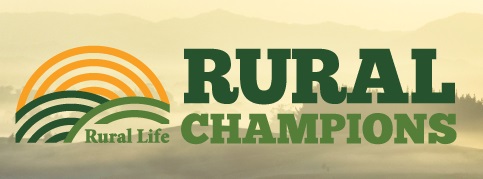
Kate is chairwoman of the High Country Accord, a not-for-profit trust advocating for the rights of pastoral leaseholders in the South Island, while Jack took part in the Kellogg Rural Leadership Programme in 2021, looking at how resilient farmers thrive despite adversity.

In 2013, Jack suffered a brain aneurysm. He then survived a cardiac arrest, went into a coma for two weeks, spent a total of eight months in hospital and had 15 major brain surgeries over a period of six years.
He is regularly invited to be a speaker at events to share his story and research findings.
What is your utopian view for the future of the farming sector?
New Zealand needs an innovative and forward thinking rural industry with thriving economic, social and environmental wellbeing.
We need a strong economy driving a profitable farming sector that enriches regional New Zealand.
It must start with recurring, sustainable profitability.
Profitability is vital to support the social wellbeing of rural communities.
The farming sector has such a wide impact on all of regional New Zealand. When farmers succeed the regions flourish, reinvesting in continued growth of the region and providing income for the whole country.
Profit is also the key resource that allows farmers to continue to invest in positive environmental projects and outcomes.
It is important to foster closer relationships between rural and urban New Zealanders with both having a greater appreciation and understanding of the other and the different challenges we all face in our everyday lives.
A necessity is creating a rural industry that attracts and retains young people into a range of careers in everything from research to rural services to farming in which they can progress and succeed, but most importantly be passionate about.
Finally we need to have a farming sector that all New Zealanders, no matter where they live, are proud of.
What makes a good rural community?
Connection, people looking out for and looking after each other and getting involved, whether that be in a local sports club, a community event, club or group or just checking in on neighbours, especially when times are tough.
It is also important to contribute, to be seen and put your hand up to get things done.
It’s up to the people within the community to take responsibility for making it the kind they want to be part of.
Always show appreciation for the heroes in our communities. Usually they are the people doing the hard graft behind the scenes that no-one sees.
We are privileged in our rural communities to have so many people who are willing to do so much for so little, if anything, in return. We need to celebrate that, even if it’s done in our typical, low-key rural way. A genuine thank-you goes a long way.
What advice would you give your younger selves?
Firstly, work hard. Jack’s late grandfather had a little badge pinned on the wall of his office — "the only time success comes before work is in the dictionary".
Look for opportunities, whether they are sporting, educational, travel, work, or business.
Opportunities provide experience and you never know where they might lead you.
It doesn’t matter if they don’t all work out: often you learn the most when things don’t go to plan.
Enjoy your life and consciously find things to be grateful for. There’s always some good, even in the most dire of situations. The goal is not to live forever, it’s to create something that will.
— Jack and Kate Cocks, Sheep and beef farmers, Lake Wakatipu














